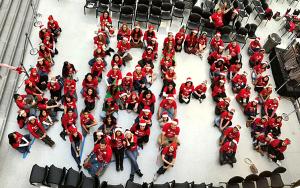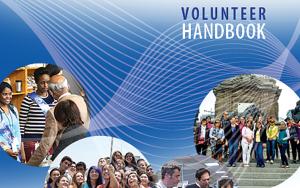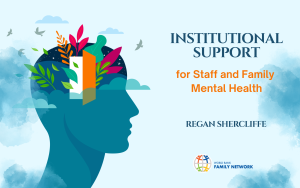AIR POLLUTION MANAGEMENT
Air pollution in Delhi is a serious issue for everyone, but particularly for families with young children and those with respiratory sensitivities
Air quality is a serious and significant problem in Delhi. Whether you come to Delhi at all with your young children is the first decision you will make in managing your exposure to the pollution. You should inform yourself to the greatest extent possible prior to choosing to move here so that you are making an informed choice.
The air in Delhi is composed of fine particulate matter called PM2.5 and PM10, argued by some to be the most harmful because it is so small and penetrates deep into the lungs, the bloodstream, and beyond. It contains heavy metals and other carcinogens, which can be 30 times higher (or more) than the limits set by the World Health Organization; to illustrate what this means, some doctors say that this is equivalent to smoking 50 cigarettes every day.
Air pollution is a significant problem at all times of the year, every single day. There is a common misconception by many people who have not lived here that there is one “bad” season of pollution, but this is false. There is one truly apocalyptic season (lasting about 3 months), but the pollution is a prevalent challenge all year round. This is something to consider when deciding whether to come to the Delhi duty station at all. It can have a serious impact on your lifestyle here, especially if you have young children. Many Bank families have left this duty station because the pollution was completely unmanageable for them with their children, while others have decided that their families will stay elsewhere while the staff member commutes to Delhi.
The seriousness of the pollution is now reflected in two aspects of the Bank’s policies:
- you will now receive a hazard allowance; and
- you will have the option to relocate to Bangkok with the staff member commuting from there.
Staff members and their families who shouldn’t move to Delhi:
- those with asthma, whether children or adults;
- those with any chronic respiratory sensitivity of any kind, whether children or adults;
- those with young children; and
- those with other health considerations that compound risks of prolonged exposure to air pollution.
For those with young children:
- The main reasons those with young children should seriously consider whether they wish to bring their young children include:
- young children need to play outside, and the amount of time available for outdoor play is extremely limited – this can be frustrating and difficult for the children but also their parents
- young children breathe more rapidly than adults – babies breathe at more than twice the rate of adults – this means that they inhale more of the pollution than adults
- the lungs and respiratory tracts in young children are still forming and are vulnerable
- pollution masks don’t fit small faces
- babies and young children won’t / don’t want to wear masks, and pull them off
If your child has any respiratory sensitivities whatsoever, you should consult a specialist before moving to Delhi. Even if your child does not have any respiratory sensitivities, your child is at risk of developing them while living in Delhi if significant investment is not made in managing the pollution in your home and every day life.
For some example sources of the foregoing information, please consult:
“Babies’ Brains Damaged by Pollution, UNICEF Says”, BBC News, December 6, 2017
http://www.bbc.com/news/health-42250558
“Holding Your Breath in India”, New York Times, May 31, 2015
https://www.nytimes.com/2015/05/31/opinion/sunday/holding-your-breath-in-india.html
“India’s Air Pollution Rivals China As World’s Deadliest”, New York Times, February 14, 2017
https://www.nytimes.com/2017/02/14/world/asia/indias-air-pollution-rivals-china-as-worlds-deadliest.html?smprod=nytcore-iphone&smid=nytcore-iphone-share
“Two Children, One Rich, One Poor, Gasping for Breath in New Delhi”, New York Times, November 23, 2016
http://www.nytimes.com/2016/11/23/world/asia/india-delhi-pollution.html?mwrsm=Email
“Delhi Residents Panic as Deadly Smog Returns”, BBC World, November 7, 2017
http://www.bbc.com/news/world-asia-india-41896676
“Raising Kids in Delhi’s Worsening Air”, The New Yorker, January 25, 2018
https://www.newyorker.com/culture/personal-history/raising-kids-in-delh…
“Delhi Diplomats Say This Isn’t What We Signed Up For”, The Indian Express, November 13, 2017
http://indianexpress.com/article/cities/delhi/delhi-pollution-diplomats-in-city-say-this-isnt-what-we-signed-up-for-4933441/
“Environmentalists Ask: Is India’s Government Making Bad Air Worse?”, New York Times, December 8, 2017
https://www.nytimes.com/2017/12/08/world/asia/india-pollution-modi.html?smprod=nytcore-iphone&smid=nytcore-iphone-share
“Half My Lung Cancer Patients are Non-Smokers: Toxic Air Crisis Chokes Delhi”, The Guardian, November 10, 2017
https://www.theguardian.com/world/2017/nov/10/lung-cancer-delhi-toxic-air-crisis-pollution-health-india
“United Airlines suspends flights to smog-filled Delhi”, CNN, November 10, 2017
http://money.cnn.com/2017/11/10/news/delhi-pollution-united-flights/
“Delhi Air Pollution: But particulate matter isn’t your only worry”, Times of India, February 5, 2018
https://timesofindia.indiatimes.com/city/delhi/-but-particulate-matter-isnt-your-only-worry/articleshow/62782165.cms
How to choose an apartment with pollution management in mind
- In general, newer apartments are easier to manage pollution than older apartments. While the older, colonial homes are wonderful, a newer, more modern apartment is more practical for pollution management. These are usually more air tight with lower ceilings, better windows, etc. Ideally, look for something that allows you to close off rooms. Avoid buildings that are close to main roads. Don’t be tempted by attractive looking terraces and outdoor spaces. The reality is that you will rarely use them.
- As of 2017, there are new rules prohibiting the use of diesel generators. Therefore, it is important to choose a home in an area with reliable power, and fewer power cuts. Although every enclave in Delhi is susceptible to regular power cuts, particularly during the hottest months of the year, avoid enclaves that are less well serviced.
- Some apartments are first floor and a basement with a large open area around the staircase. It is very difficult to manage air quality in any large open space, especially one near large windows and doors.
Equipment
Breathe Easy is a local company owned and operated by Barun Aggarwal, who was educated in the US and now does custom retrofitting of air purification systems of whole buildings, such as the World Bank’s offices and many embassies. Their business has grown rapidly, but they still provide assistance to individual households. They do home evaluations, sell air purifiers and monitors, as well as good quality plants. Their website is www.breatheeasylabs.com. Recommended.
Air purifiers
- The options have evolved remarkably in the last 3 years. It is important to understand that no air purifier currently on the market was manufactured with air quality like that of Delhi in mind. This means that the manufacturers instructions about cleaning should be ignored. In general, the machines should all be cleaned weekly.
- Knowing the size of each room is essential to determining the type of machine and how many (see below about home evaluations). As an example, a small to medium sized bedroom requires two of the Sharp A50s (600sq ft).
- The Sharp A50s are standard and recommended (about INR 25,000). As they were not manufactured for extremely bad pollution like that in Delhi, they also require a pre-filter – these can be purchased in Delhi, and are crude but simple and effective adaptations to improve the efficiency and efficacy of the machines. The pre-filter should be replaced weekly, and the HEPA filters cleaned weekly. The HEPA filters should be replaced every 8-12 months. Many of us have someone come to look at them to determine whether they need to be replaced.
- In general, you should never turn your machines off, including when you are away. If the machines are off for long periods and there is no one in your apartment, the pollution particles tend to settle into furniture, wood, rugs, fabrics, towels, beds, surfaces, plush toys, and upholstery.
- Make sure nothing blocks any of the vents for the flow of air both in and out.
Some other models of air purifiers used by Bank families include:
https://www.blueair.com/in/
http://smartairfilters.com/in/en/product/cannon-diy-air-purifier-white/ (about INR13,000)
http://www.lg.com/in/air-purifiers/lg-AS40GWWK0 (about INR43,580)
Monitors
One of the first purchases to be made (along with air purifiers) is a portable air quality monitor. These are always improving. Ideally, you want to be able to check PM2.5, PM10, oxygen levels, and mold/mildew. If it’s portable you really only need one. Some only check some of these, but again, these are constantly improving. The standard monitor is often referred to as the “laser egg”.
Sealing your apartment
Doors to the outside should be sealed with weather-stripping, like that found in colder climates, and consider using door draft guards.Some choose to seal windows and doors that aren’t regularly used with electrical tape. Doing this has an almost immediate effect on indoor pollution levels (assuming your air purifiers are also running). Any air leaks from windows and doors can sabotage the effectiveness of even the best air purifiers.
However, once everything is sealed, this can create separate problems of air flow, decreased oxygen levels, and buildup of mold and mildew.
Air purifier for your car
Yes, you need one. It sounds crazy, but the amount of time one spends in the car, and often stuck in traffic, means that you need one. There are some basic models. Use bungy cords to tie them down in the foot of the back seat. If you have an Innova or SUV, tie it down in the back.
Setting expectations about personal expenditure
For effective pollution management, an average family in an average sized apartment (3 bedrooms) should expect to spend roughly $5000-7000 USD on equipment, including purifiers, monitor, plants, pre-filters, and filters, but excluding electricity costs.
You can save money by purchasing equipment that is still in good condition from families who are moving. However, make sure you carefully inspect the HEPA filter; if you are at all suspicious about the HEPA filter’s age and efficacy, replace it.
The World Bank provides a small one-time allowance to assist with the purchase of air purifiers.
Plants
The Breathe Easy website lists the plants that are available in Delhi that are helpful in Delhi households. When you seal your home, you run a real risk of carbon dioxide poisoning. Some monitors will also tell you about CO2 levels in your indoor area. This risk can be mitigated by filling your home with numerous plants to generate oxygen, especially those that produce oxygen at night (since one spends many hours at night in a sealed room). Embrace your indoor jungle.
Home evaluation
You may wish to consider having a home evaluation done in order to determine the number of plants, and the number and type of air purifiers appropriate for your new home’s structure and dimensions. The evaluation includes measurement of rooms, oxygen levels, and air pollution. It can also include a list of recommended plants. The cost for this service is about INR3000 through Breathe Easy. Some have suggested their evaluation could have been more thorough.
Air quality updates
- The website www.aqicn.org is popular for monitoring pollution levels in Delhi. AQI stands for Air Quality Index. There are 2 international measurements: one standardized by the US, and another standardized by China.
- The closest monitor to Vasant Vihar and Shanti Niketan is the one in RK Puram. The closest monitors for Chanakyapuri are the one at the US Embassy and the one at Mandir Marg. There are also apps.
- We all check the reading from the nearest air quality monitor prior to making a decision about whether to go outside.
- In general, parents and schools do not let children play outside if the air quality is above 250 (by the US AQI measurement). Recently, some schools have moved the cut-off to 300 since there have been fewer days when air quality was below 250.
- Note that the safe limit for PM2.5 set by the WHO is 60 (by the US AQI measurement).
When it becomes unmanageable
You may find that, when pollution levels turn apocalyptic, it is impossible to manage the air pollution levels indoors to an acceptable level for your family’s health. Some families choose to leave Delhi for a period of time, as this is the only effective strategy for truly managing exposure and risk.
Masks
- It is believed that masks can at least partly mitigate the effects of breathing polluted air, though there is little research on this.
- The better masks have at least one filter, and fit tightly around the face. Better options include Cambridge Masks, which are available in Singapore and the UK. Masks need to be replaced frequently. The Bank now tries to provide masks to staff and families once a year.
- Masks are not a realistic pollution management tool for babies and very young children.
Schools
Some schools take the air pollution problem seriously, while others do not. When evaluating schools, ask how often measurements of indoor air quality are made. The answer should be “several times a day”, and they should be able to provide you with a written record. You should ask how the school makes a decision about whether to allow children outside. Look at the school’s building and structure. Is there a central purification system? How is it monitored? Are there air purifier machines? If so, do they use pre-filters? How often do they clean the filters? Is it plugged in? What is their current AQI cut-off for outside time? Schools will not refund fees, so it is best to be clear on pollution policies before you are committed.
World Bank assistance
Working remotely
There may be days during the year when the Bank will allow staff members to work remotely.
Bangkok
Any World Bank family that does not wish to relocate to the New Delhi duty station may elect instead to relocate to Bangkok.






